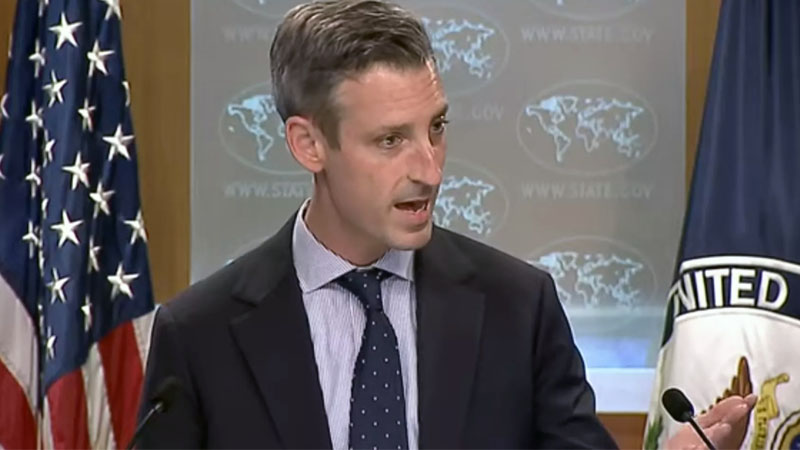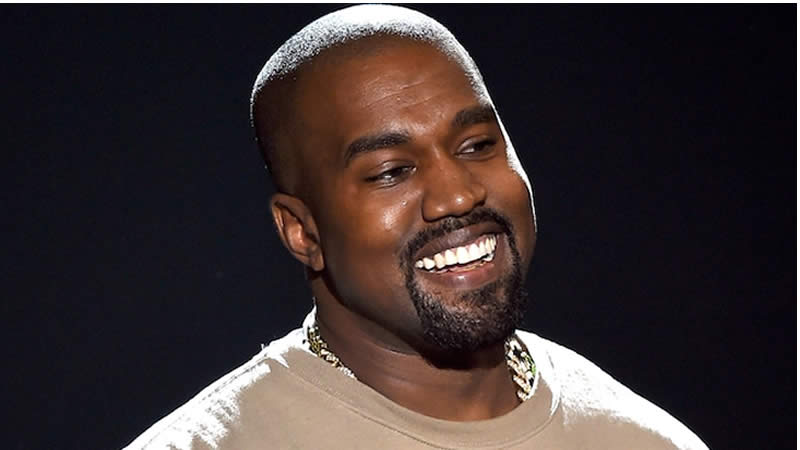Watch: State Dept Spox Tells AP Journo to ‘Find Solace’ in Russia if Doubting US Credibility

© Sputnik Screenshot
During a press briefing on Thursday, reporters who challenged US State Department spokesperson Ned Price for evidence of claims he was making against the Russian government were given stern rebuke for questioning Washington’s credibility.
The US claimed on Thursday that Russia was “planning to stage fabricated attacks by Ukrainian military or intelligence forces as a pretext for a further invasion of Ukraine,” Price told reporters. The Pentagon made similar claims after the reports were leaked to the Washington Post earlier in the day.
As Price relayed it, “One possible option the Russians are considering, and which we made public today, involves the production of a propaganda video, a video with graphic scenes of false explosions, depicting corpses, crisis actors pretending to be mourners, and images of destroyed locations or military equipment – entirely fabricated by Russian intelligence.”
“Russia has signaled it is willing to continue diplomatic talks as a means to deescalate, but actions such as these suggest otherwise,” Price added.
Russian Permanent Representative to the EU Vladimir Chizhov has denied the reports, saying Russia has never used false flag incidents. However, after Price’s opening monologue, he was quickly grilled by reporters at the presser, including Associated Press reporter Matt Lee, who is known for holding government representatives’ feet to the fire.
Lee began by asking Price about “what action are you talking about,” with Price eventually claiming that he was really talking about “actions” Russia is alleged to have performed in the past, even though Lee pointed out Price’s wording suggested action in the present, for which the US had evidence.
“We told you a few weeks ago that we have information indicating Russia also has already prepositioned a group of operatives to conduct a false flag operation in eastern Ukraine. So that, Matt, to your question, is an action that Russia has already taken,” Price told the reporter.
“No, it’s an action that you say they have taken, but you have shown no evidence to confirm that,” Lee retorted. “What is the evidence – I mean, crisis actors, really? This is, like, Alex Jones territory here that we’re getting into now. What evidence do you have to support the idea that there is some propaganda film in the making.”
“Matt, this is derived from information known to the US government. Intelligence information that we have declassified,” Price responded before being momentarily interrupted by Lee’s line of questioning. “It is intelligence information that we have declassified.”
Unsatisfied with the response, Lee questioned: “Well, where is it? Where is the declassified information?” This back-and-forth continued for several minutes, with both men becoming increasingly frustrated and pointed with one another.
“I’m sorry that you are doubting the information that is in possession of the US government,” Price told Lee. “What I’m telling you is that this is information that’s available to us, we are making it available to you for a couple of reasons. One is to attempt to deter the Russians from attempting to go ahead with this activity. Two, in the event that we’re not able to do that, in the event that the Russians do go ahead with this – to make it clear as day, to lay bare the fact that this has always been an attempt on the part of the Russian Federation to fabricate a pretext.”
Lee quickly fired back, stressing to Price that he was providing no evidence to support the administration’s allegations.
“It’s like you’re saying, we think we have information the Russians may do this, but you won’t tell us what the information is and then when you’re asked what the information is, you say, ‘I just gave it to you.’ But that’s not the way it works,” he said, before shooting down another baseless explanation made by Price.
“But then it’s unprovable! I mean, my God, what is the evidence that you have that suggests that the Russians are even planning this? I mean, I’m not saying that they’re not, but you just come out and say this and expect us just to believe it without you showing a shred of evidence that it’s actually true, other than when I ask, or when anyone else asks, what’s the information, ‘well I just gave it to you,’ which was just you making a statement.”
“Matt, you said yourself you’ve been in this business for quite a long time. You know that when we make intelligence information public, we do so in a way that protects sensitive sources and methods. You also know that we do so, we declassify information only when we’re confident in that information. If you doubt the credibility of the US government, of the British government, of other governments and want to find solace in information that the Russians are putting out, that is for you to do.”
Price then moved on to other reporters’ questions, who also challenged him for evidence, but was more willing to accept Price’s response. However, journalists who watched the exchange took to social media to speak out against Price’s “bad faith” remark, pointing out that there was ample reason to question US government claims supposedly based on intelligence, such as those leading up to the 2003 US invasion of Iraq.
Ironically, four years ago on November 27, 2018, Price condemned the Trump administration’s press secretary, Sarah Huckabee Sanders, for doing the same thing when she said that the administration had no “definitive evidence” that Saudi Crown Prince Mohammed bin Salman was connected to the assassination of Saudi dissident journalist Jamal Khashoggi.
The US has claimed since November 2021 that a buildup of Russian troops on the border with Ukraine is a prelude to an invasion of the country. Moscow has denied this, saying its troops are engaged in drills and asserting its right to deploy Russian soldiers anywhere on sovereign Russian soil.
The Ukrainian government has said largely the same, downplaying Western invasion hysteria by pointing out that such deployments are typical and legal, and that the Russian troops deployed could not form an invasion force.
Moscow has put forth security proposals designed to lower tensions in the region, including that NATO ceases its eastern expansion and promises not to admit Ukraine to the alliance or position offensive weapons there. While NATO has said it has no plans to station missiles or other forces in Ukraine, it has so far refused to write off the possibility of admitting Ukraine, saying Kyiv can decide its own security arrangements.


